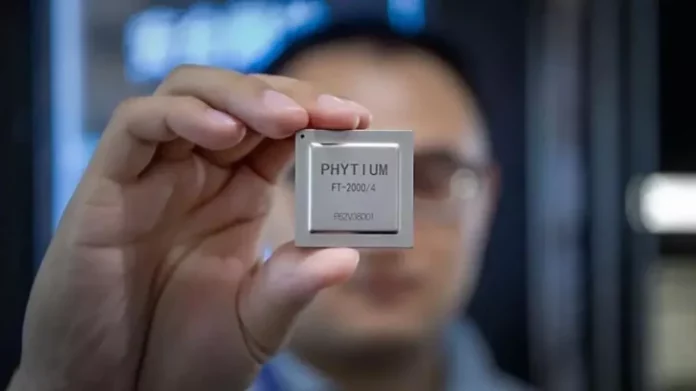
Chinese chipmaker, Phytium, has unveiled its next generation of high-performing CPUs, competing with the likes of AMD and ARM.
Phytium Showcases Next-Gen CPU Architecture Performance For China's Server Markets, Strongly Competes Against AMD Zen 3 Architecture
While you may be hearing about Phytium for the first time, in terms of market presence, they have been here for almost a decade, however confined to China only. The company started out by integrating the outdated SPARC instruction set and later on shifted its focus towards the ARM camp since this enabled it to reach high-performance targets and a more "well-developed" ecosystem.
Progressing with time, Phytium made noticeable strides in generational improvements, however, the company looks to make a decisive entry in the upcoming years. By now, Phytium has focused on three different industry domains, ranging from server applications to desktop and embedded products. The company has recently defined its future developments at the 2023 Integrated Circuit Application Innovation Forum, where it aims to compete with market offerings.
Based on the performance data officially disclosed by the company, it is revealed that they are prepping for their next-gen CPU release, called the "FTC870". The processor shows a whopping 20% generational improvement over its predecessor the "FTC860". Moreover, the FTC870 has also been benchmarked at the SPEC CPU2017 application, which is widely utilized for server CPUs. Official data reveals that the CPU is able to hold up against the ARM Neoverse N1, and even gives tough competition to the Neoverse N2 in some scenarios.
Most importantly, the chip competes favorably against AMD's Zen 3 CPUs. The FTC870 with a clock speed of 3 GHz is able to get within the reach of the AMD EPYC 7443 which runs at higher clocks of 4 GHz. The CPU also surpasses the performance of the ARM Neoverse N2 in the floating point tests while getting really close in the Integer benchmarks.
Now what Phytium has managed to obtain here, is indeed a breakthrough for Chinese server markets, since they have been "cut off" from cutting-edge components for a long time now. The harsh US sanctions have promoted the growth of "homegrown" equipment, and Phytium's FTC870 is a prime example of it. While this is official whether the disclosed figures are actually true, oftentimes, it is a completely different story when Chinese CPUs are benchmarked by individual reviewers.
Phytium's accomplishment would prove to be vital for Chinese server markets, especially since they are expected to grow tremendously in the upcoming years. It will be interesting to see how Phytium's architecture is received by the Chinese firms, since by the looks of it, they do pack great performance.
WccftechContinue reading/original-link]






